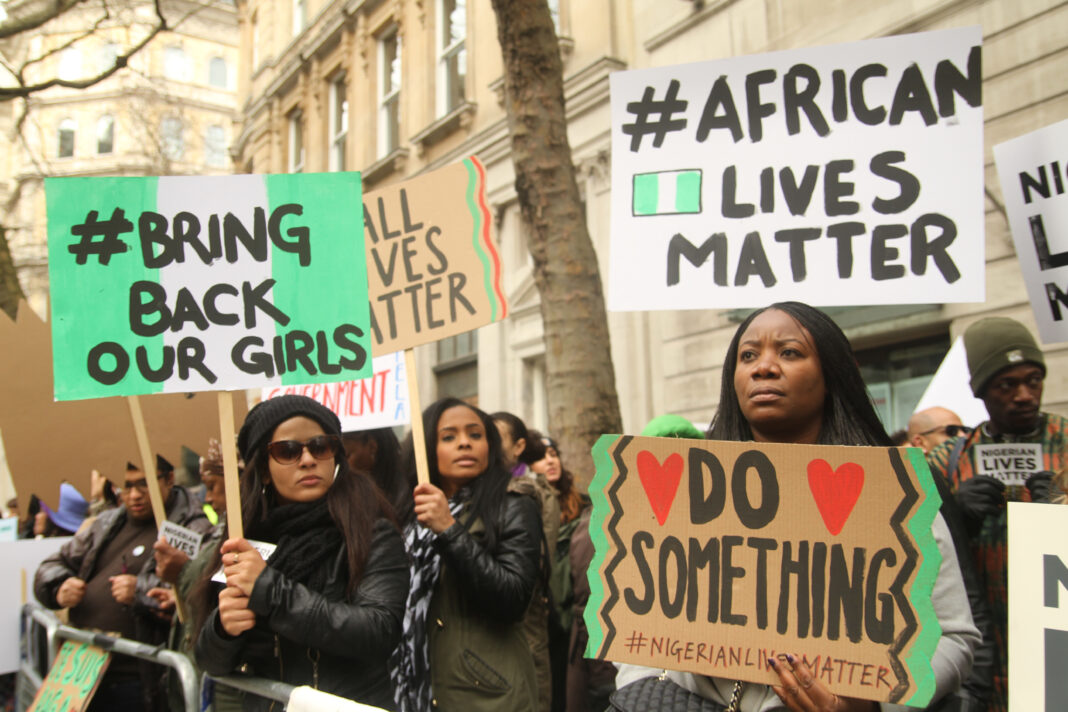In the last week alone, three mass abductions took place. The perpetrators are criminal, terrorist or herdsmen groups taking advantage of the extreme weakness of the Nigerian government. Riccardo Noury, spokesperson for Amnesty International Italy, explains the impact of a cycle of violence that never seems to end.
What can we say about the internal situation in Nigeria?
“There are two very serious problems. The kidnappings, of course. But there is also the issue of intercommunal clashes between sedentary populations and nomadic populations linked to pastoralism. In other words, the usual clashes that exist in other parts of Africa as a result of the diminishing availability of land, between those who cultivate the land and those who need pasture for their animals. These are clashes that flare up periodically, with this group of herdsmen, the ‘Fulani’, committing massacre after massacre.”

And what about the kidnappings?
“This has been going on for 15 years. Since 2009, when Boko Haram started committing war crimes and crimes against humanity, there have been about 50 mass abductions, mostly in schools, which has meant that the right to education, particularly in the north-east of Nigeria, is now unattainable because enrolment is falling, schools are being closed, some are being put out of business because of Boko Haram’s actions. There are thousands of girls and young women who have been freed in recent years, but thousands more are still in the hands of Boko Haram, and there are sources that Amnesty International considers credible that some of these boys have become virtually child soldiers, forced to fight with Boko Haram.”
Who else is operating in the country?
“There is another Islamic State-linked group called the Islamic State West Africa Province. It operates mainly in the north-west and centre of the country. It carries out attacks, mainly against representatives of institutions, i.e. local governments, but it also carries out massacres of civilians. In April last year, 46 civilians were killed in Benue State. And this is the situation: there is total insecurity. There are delays and delays in the intervention of the army, even when it is stationed only a few dozen kilometres from the places where Boko Haram operates.”
Why is there a delay in the response?
“There are a number of reasons. There is certainly a lack of military bases on the ground. They are always quite far away. Secondly, in many cases, as Amnesty International has documented, there is a collective resignation that leads people to say: ‘Why should I risk my life, for little pay, to go and confront a group that now effectively controls parts of Nigeria?’ Sure, there may be cases of sympathy for Boko Haram, but basically ineptitude, ill-prepared and ill-paid armed forces create this sense of total abandonment. And what is worse is that when the armed forces intervene, they in turn slaughter civilians. Just in the last year, there have been at least three attacks in which the security forces have killed civilians.”
How many people are we talking about and why is this happening?
“I would say hundreds. Some may be inaccurate attacks, but when it happened on 3 December in the state of Kaduna, with the death of 120 people attending a religious ceremony, it is difficult to believe that it was a mistake or deeply flawed intelligence. Inaccuracy is not a mitigating factor. If these are not direct attacks on civilians, they are disproportionate attacks and still war crimes. There is a total lack of transparency and civilians feel caught between a rock and a hard place.”
Let us return to the issue of kidnapping. Not so long ago, a law was passed that included the death penalty for kidnappers. Is this an effective solution?
“Not at all. In situations of terrorism, of armed conflict, the death penalty has always proved to be a total disincentive and, if anything, creates a narrative of martyrdom by executing militants. States that have a clear idea of how to manage conflict do not see it as a solution. Nigeria has not shown in the last 15 years that it can control a phenomenon and even crush it militarily; the idea that the death penalty can solve anything when you don’t have a functioning judicial system, when you don’t have forces on the ground to free the kidnapped, to arrest the kidnappers, is an empty proclamation.”
There are many girls among the kidnapped. What happens to them?
“The risk of sexual violence is obviously high. Some become pregnant, others return home with raped children. But this phenomenon of violence against women and girls is not limited to conflict zones, because the official figure for 2023, which is not even complete because it refers to the period from January to October 2023, was 24,720 reports of sexual violence and 975 feminicides.
In the northern states, it is clear that the majority are Muslim and that Christian women and girls suffer the most. The religious factor is also involved. Not because there are religious rules that allow it, but because of the hatred between religious groups.”
What are the prospects for peace in Nigeria?
“The Nigerian authorities are unable to put an end to this climate of impunity, so the justice aspect is missing. And from that point of view, there is a clear need for international action. The International Criminal Court could deal with Boko Haram’s war crimes. Amnesty International has no position on military intervention. Certainly the African Union must take responsibility, possibly even with a multinational mission made up of troops from other countries. But the problem is, where do you get them from? You take them from other states that are ravaged by conflict, you take them from states where the armed forces are involved in human rights. So this is both an opportunity and a risk. But it is clear that the African Union should look at what is happening in Nigeria.”
And the UN?
“The UN has a number of such missions in Africa, which also have a robust mandate for the use of firearms, if need be, for the protection of civilians. In the case of Nigeria, this has never been tried, partly because Nigeria has enormous political weight within Africa, and this is a strong deterrent that rules out intervention a priori.”
Cover image by David Mbiyu on Shutterstock























